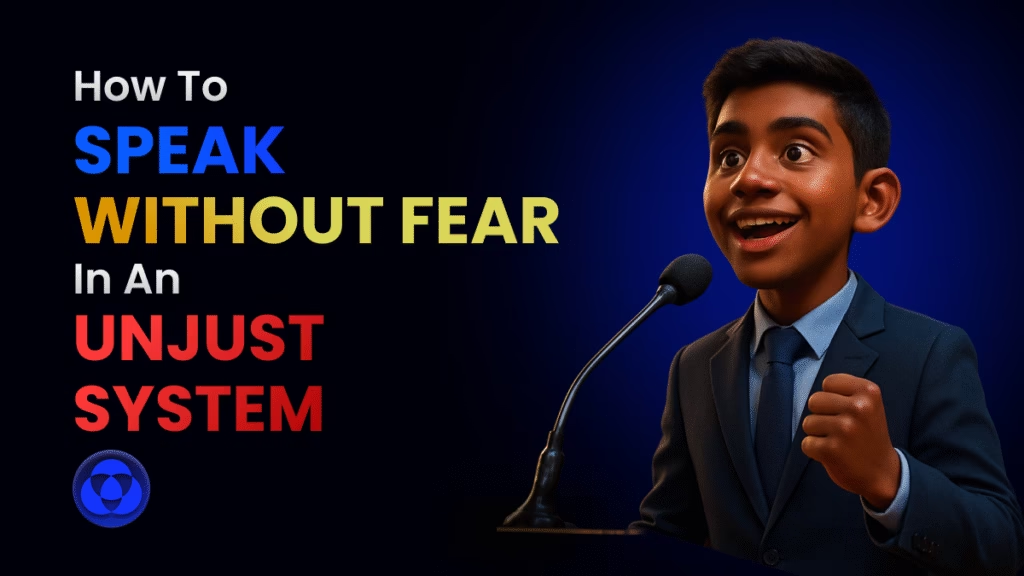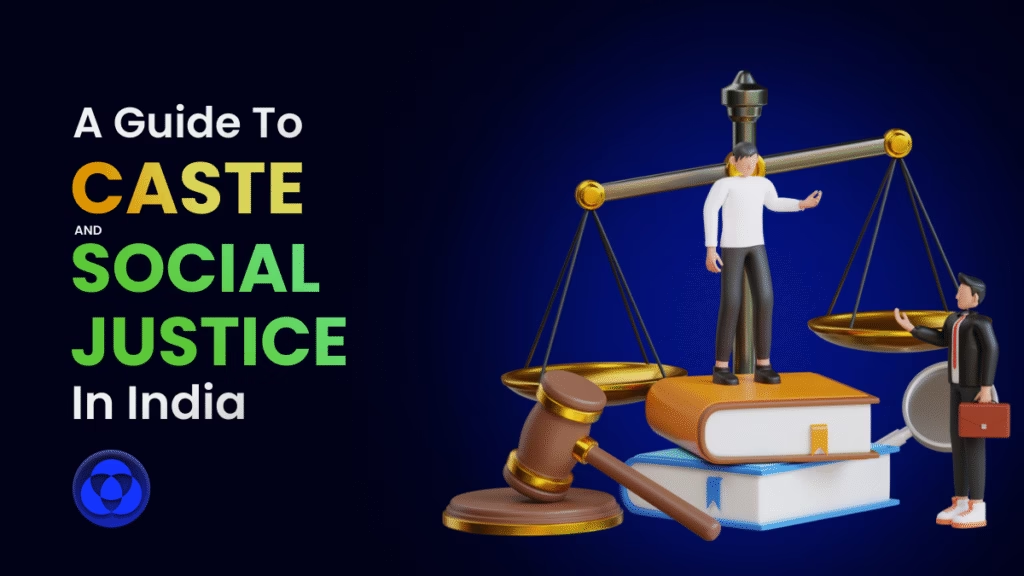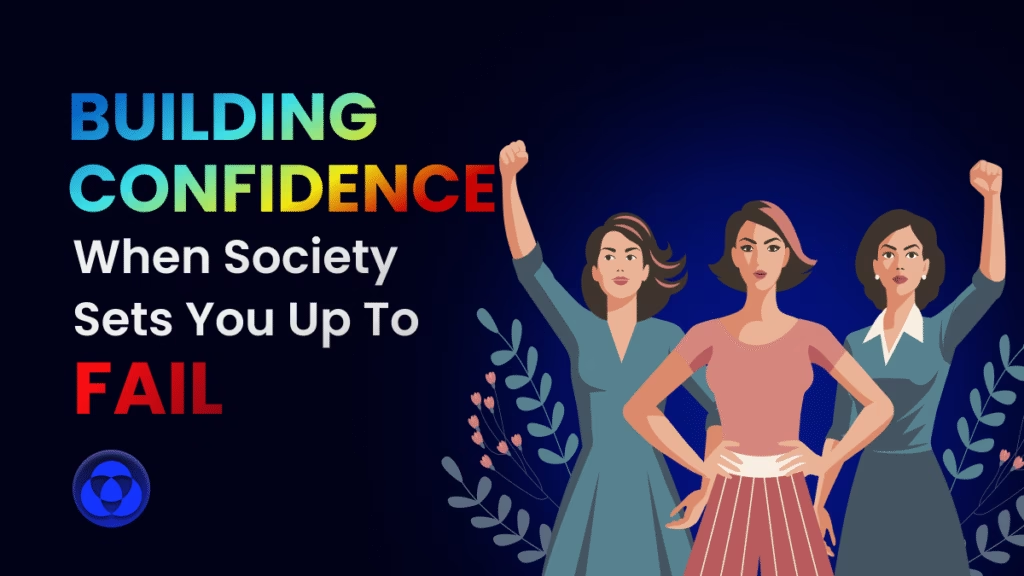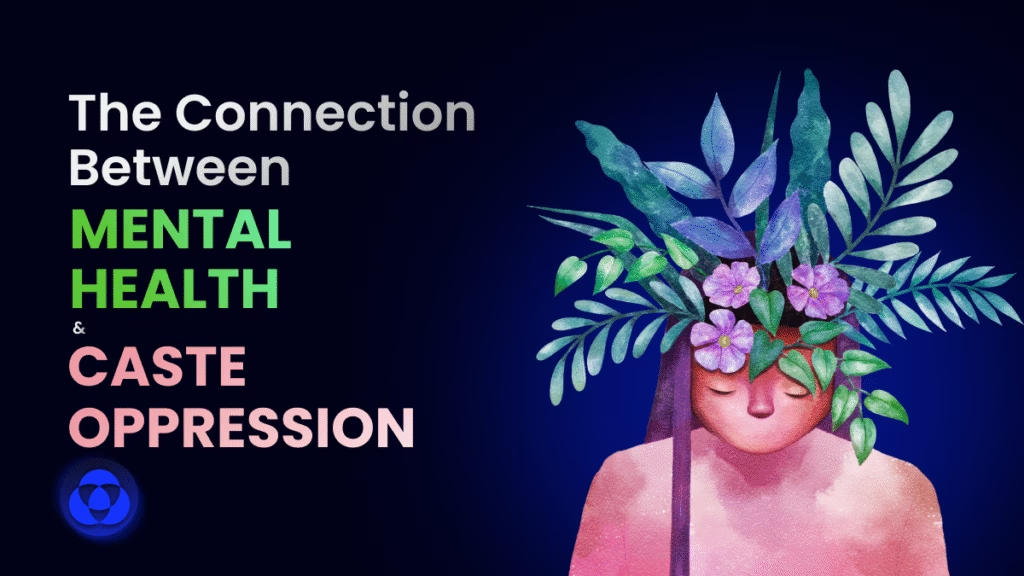Have you ever held back from speaking up, even when you knew you should? That moment when words form in your mind but never make it past your lips? For many Bahujans, this experience isn’t just occasional hesitation—it’s a deeply ingrained response shaped by generations of systemic oppression, social hierarchies, and the very real risk of backlash. The silence isn’t simply personal; it’s political, historical, and emotional.
This article explores why many Bahujans struggle to assert themselves, the consequences of remaining silent, and practical strategies to build the confidence needed to speak up in personal, professional, and social spaces. Whether you’re looking to advocate for yourself or your community, understanding the roots of this silence is the first step toward finding your voice.
The Historical Roots of Silence
When we ask why so many Bahujans hesitate to raise their voices, the answer is not simply about personal hesitation or shyness. It is the result of a long and painful history shaped by generations of systematic silencing under caste-based oppression.
The Weight of History
For centuries, the caste system has not only denied Dalits and other Bahujans access to resources and opportunities, but it has also denied them a voice. This exclusion was not limited to temples or schools. It extended to every space where ideas were shared and decisions were made. Speaking out was dangerous. Challenging injustice often led to brutal consequences. In such a world, silence became a way to survive. And over time, that silence became deeply rooted, passed down like an inheritance wrapped in fear.
The Brahminical social order did more than create social and economic inequalities. It built a system that decided whose knowledge mattered and whose did not. It determined who was allowed to speak and who was forced to remain unheard. This mindset has not disappeared. It still shapes the way public spaces function, whose voices dominate discussions, and who continues to be left out.
Internalized Inferiority and Division
Perhaps even more damaging than external silencing is the way this system has worked to convince many Bahujans that their voices do not deserve to be heard in the first place. Over time, this leads to internalized feelings of inferiority. As one analysis points out, “The Bahujan ego, being inferiority-blended, takes the shape of a personality cult. Because of this personality cult, the cause of strengthening caste identity and caste consolidation suffers.”
Instead of unity, we often find division. The system has succeeded in creating distance between communities that should be standing together. As some have noted with painful clarity, “Dalits hate BCs and vice versa. Bahujan leaders, whether Dalits or BCs, crave recognition from the Brahmins.” These are not natural divisions. They are consequences of a system built to keep us divided and distracted from our shared struggles.
The Fear of Consequences
For many Bahujans, the fear of speaking up is not irrational or exaggerated. It is a fear grounded in reality. When someone from our community dares to speak the truth, they often face backlash. This can come from dominant caste forces, but sometimes also from within our own circles.
This silence is not the result of weakness. It is the result of survival. But survival should not be the only goal. Our truths are powerful, and they deserve to be spoken.
It is time to listen to one another with care. To stand together without fear. And to turn generations of silence into a new future built on courage, clarity, and collective strength.
Why Your Voice Matters
Your voice is not just sound. It is a declaration of your existence, your dignity, and your refusal to remain invisible. For Bahujans, speaking is a powerful act. It challenges the silence that has been forced on us for generations. It turns survival into resistance and pain into purpose.
Speaking as Visibility and Resistance
Speaking up is not about shouting. It is about clarity. It is about being present, seen, and heard. In a society where caste has pushed Bahujans to the margins, using your voice becomes a way to reclaim space that has been denied.
Every time you speak your truth, whether in a classroom, a workplace, or a family gathering, you challenge the idea that only a few are allowed to speak. You show that your experiences matter and that you refuse to disappear. Your voice is not a disruption. It is a correction to centuries of erasure.
Lived Knowledge as Power
You carry a kind of knowledge that institutions often ignore. It is the knowledge that comes from lived experience. It is real, grounded, and deeply insightful.
What you have seen, felt, and endured holds truth. It teaches more than what can be found in textbooks or official reports. When you speak from your experience, you are not just telling your story. You are revealing the hidden truths of this society. You are helping others understand what the system tries to keep hidden.
The system does not change just because facts are presented. It changes when people like you speak with the weight of reality behind their words. Your voice brings honesty and urgency to conversations that are often too comfortable.
Personal Affirmation
Your voice is also for you. It is a form of healing. It reminds you of your worth. When you speak your truth, you are telling yourself that you matter. That your life, your feelings, and your perspective are valid.
“You do not need permission to be heard.”
You were never meant to wait for approval. Not from dominant castes, not from institutions, not even from those who doubt your value. Your right to speak comes from your humanity. No one can give it to you, and no one can take it away.
Speaking is not just about changing the world outside. It is also about reclaiming the world within.
The Cost of Staying Silent
Staying silent may seem like the safer path. But it comes at a cost, and that cost is often heavy.
Personal Consequences
For many Bahujans, silence leads to emotional exhaustion. It builds up quietly, creating stress, anxiety, and self-doubt. When you keep your thoughts and pain inside, you may begin to believe they are not important.
Young Bahujans already face enormous challenges. From financial struggles to lack of resources to uncertainty about the future. Silence only adds to that burden. It can lead to:
- Increased mental and emotional stress
- Lowered self-confidence
- Missed chances for learning and leadership
- Normalizing unfair treatment
- Feeling isolated even in your own community
Silence may feel like protection, but it slowly chips away at your self-worth. Speaking, on the other hand, builds strength and self-respect.
Collective Impact
The silence of one voice might seem small. But when many voices stay quiet, the effects become massive. Oppression grows stronger when it goes unchallenged. Injustice becomes routine when no one speaks against it.
When Bahujans stay silent:
- Discrimination continues without resistance
- Negative stereotypes remain uncorrected
- Laws and policies are made without our voices
- The next generation learns to be quiet instead of confident
We do not just pass down land, culture, or memory. We also pass down patterns. If silence becomes a habit, it will shape the future just as much as anything else.
Your voice is more than self-expression. It is a tool for survival, a bridge to others, and a step toward justice. It carries the power to heal you, to unite us, and to challenge the system that still tries to silence our truth.
Speak not because it is easy, but because it is necessary.
Practical Strategies for Finding Your Voice
Building the confidence to speak up does not happen all at once. It is a process that unfolds with self-awareness, steady practice, and the right kind of support. The fear that many Bahujans feel when trying to express themselves is real. It is shaped by generational experiences and social conditioning. But it is possible to unlearn this fear and reclaim your voice. Below are practical approaches to help you begin that journey.
Start with Self-Awareness
Before expressing yourself outwardly, take time to understand what is happening inside you.
Identify your triggers: Pay attention to moments when you feel silenced. Ask yourself where this happens most. Is it in school, at work, in family conversations, or in public? Recognizing these patterns helps you take the first step to change them.
Notice the physical signals: You might feel a lump in your throat, tension in your chest, or butterflies in your stomach when you want to speak but hold back. Being aware of these signals helps you prepare and respond.
Challenge internal beliefs: Many of us have received silent messages that our voices are not welcome. Question those messages. Remind yourself that your perspective is valid, even if it has been ignored in the past.
Try journaling and voice notes: Start small. Write down thoughts you are afraid to say aloud. Record your ideas in voice notes. Speaking to yourself can be a gentle way to build strength.
Build Skills in Supportive Environments
It is easier to build confidence when you are surrounded by people who respect your voice.
Create a trigger phrase: Have a sentence ready when you want to join a conversation. Try something like “I would like to add something” or “Can I share a thought?” These phrases help you break the silence more comfortably.
Practice with trusted friends: Rehearse conversations that feel intimidating. Whether it is a discussion with a teacher, a manager, or a family elder, practicing with someone who supports you can reduce anxiety.
Join supportive communities: Spaces that center Bahujan voices, such as Ambedkarite study circles or online groups, allow you to practice speaking freely. They also help you feel less alone.
Write before you speak: If talking is difficult, writing can be a powerful first step. Share your thoughts through poetry, essays, social media posts, or letters. This helps you shape your voice with care.
Learn Language Tools for Expression
Being effective does not mean being aggressive. It means being clear.
Practice simple phrases: Say “I disagree,” “This is my experience,” or “Here is another point of view.” These tools help you speak with honesty and confidence.
Frame your thoughts clearly: Use phrases like “In my case…” or “What I have noticed is…” Framing your thoughts this way makes your voice easier for others to receive.
Prepare for Resistance
Sometimes people will not want to hear what you have to say. Preparing for that can help you stay strong.
Anticipate possible reactions: Think about how someone might respond to your views. Prepare calm, clear replies in advance. You do not have to win every debate, but it helps to be ready.
Learn your rights: Understand your legal protections at school, work, and in public. When someone tries to silence you unfairly, knowing your rights gives you power to push back.
Know when to stay silent: Speaking up is powerful, but not every moment requires a response. Sometimes, choosing silence is a way to protect your energy for more important situations.
Build collective strength: One voice can be dismissed. A collective voice is harder to ignore. As Radhika Vemula said, after her son Rohith’s death, “We, Dalits and Bahujans, need to create political leaders who will sit in Parliament and talk about our issues.”
Ground Yourself Emotionally
Speaking up often stirs anxiety, especially when you are challenging deeply rooted injustice. Emotional care is part of the process.
Use calming techniques: Try breathing exercises or grounding practices before you speak. A simple phrase like “My voice is valid” can help steady your nerves.
Speak in stages: You do not have to say everything all at once. Begin with a short sentence. Build slowly. Each word builds your confidence.
Practice mindfulness: Focusing on your breath or your body helps you stay present. This keeps fear from taking over.
Celebrate Growth, Not Perfection
Your progress does not have to be loud or flawless. Every small step matters.
Acknowledge small wins: If you asked a question in class, spoke up at work, or shared your view in a group chat, that is a victory. Give yourself credit.
Keep your purpose in mind: You are not speaking only for yourself. Your voice adds strength to a larger movement for dignity, justice, and change.
You do not need permission to be heard. Your voice belongs in every room that shapes your life. And when you speak, you make it easier for others to speak too.
Addressing Common Concerns
Many Bahujans share similar worries about speaking up. Let’s address some of these common concerns:
“What if I speak up and people don’t take me seriously?”
This fear is valid, especially given historical patterns of dismissing Bahujan voices. However:
- Preparation strengthens your position. Research your points thoroughly.
- Speaking with confidence (even if you have to fake it initially) increases the likelihood of being heard.
- If you’re dismissed, that reflects on the listener, not on the value of your contribution.
- Remember that being taken seriously often requires persistence—change rarely happens after a single conversation.
“How can I assert myself without feeling disrespectful or afraid?”
Many Bahujans have been conditioned to associate assertiveness with disrespect, but:
- Assertiveness and respect aren’t mutually exclusive. You can firmly state your position while acknowledging others.
- Practice distinguishing between healthy respect and unhealthy deference.
- Remember that speaking truth to power is an act of self-respect.
- Start with “I” statements that focus on your experience rather than accusing others.
“What if speaking up leads to negative consequences for me or my family?”
This concern reflects real risks that many Bahujans face:
- Assess the potential consequences realistically and develop safety plans.
- Consider whether there are indirect ways to make your point that might carry less risk.
- Look for collective actions where responsibility is shared among many.
- Remember that silence also has consequences—weigh these against the risks of speaking up.
“How do I find the right words when I’m nervous?”
Finding your voice includes finding your words:
- Prepare key points in advance for important conversations.
- Practice with trusted friends or in front of a mirror.
- Remember that perfection isn’t required—authenticity often matters more than eloquence.
- Consider writing down your thoughts first to organize them.
Speaking Up as Collective Power
When you speak, it is not only your voice that gets stronger. You create space for others to speak too. In a society where Bahujan voices have long been ignored, erased, or punished, speaking up becomes an act of resistance and community-building. Your words can spark something greater than you imagine.
When One Speaks, Others Rise
Silence is not always chosen. Often, it is shaped by fear, isolation, or uncertainty. But when someone breaks that silence, it changes the room.
Courage is contagious: When you speak honestly, it can inspire others who were waiting for a sign that it is safe to share their own truths.
Your story makes others feel seen: Many people keep their pain or perspective hidden because they believe they are alone. When they hear you speak, they realize they are not.
One voice can start a ripple: A question raised in a classroom. A correction made during a workplace conversation. A tweet that challenges a stereotype. These moments can grow into larger conversations, new ideas, and organized action.
Every voice matters: Even if your words reach just one person, that connection can grow into something meaningful and powerful.
From Individual to Movement
Speaking up is not only a personal act. It is also political. When your voice joins with others, it becomes part of a larger movement for justice.
Your voice is part of a bigger picture: You are not speaking in isolation. Each expression of truth, pain, or hope adds to the collective strength of the Bahujan community.
Movements begin with moments: Many historic struggles for equality began when ordinary people chose to speak up. What feels small today can become a turning point in someone else’s life.
Expression becomes resistance: In a system that tries to silence certain communities, every time a Bahujan speaks with clarity and pride, it chips away at that system’s power.
Collective power needs many voices: Movements are not built by one leader or one slogan. They are sustained by many people using their voices in different ways—in classrooms, offices, families, streets, and online spaces.
You strengthen the whole: When you speak, you show others that it is possible. You remind them that they are not alone. You help build a future where no one has to stay silent to feel safe.
Speaking up may start as a personal act, but it always has collective meaning. In a world that tries to divide and discourage Bahujan voices, your courage helps to weave a stronger, louder, and more united front. Each word spoken with truth adds to the path toward justice and liberation.
Voice Is a Journey, Not a Destination
Finding your voice is not about reaching a final destination. It is a journey that unfolds slowly, shaped by your experiences, your courage, and your willingness to grow. Some days you will speak with strength and clarity. Other days your voice might shake. But every word you choose to speak is valid. Every effort you make to express yourself is a step toward reclaiming your dignity and power.
You do not need anyone’s permission to begin. Start where you are. Say what you need to say, even if it is just to yourself. Write a few lines in a notebook. Share a thought in a conversation. Ask a question in a space that once felt intimidating. These small acts are not small at all. They are the beginning of something much bigger.
And as you speak, you light the path for others. Your courage makes it safer for the next person to speak. Your truth makes it harder for lies to survive. Your presence makes silence less lonely.
Speak today, in whatever way you can. Encourage someone else to do the same. Create circles where every voice is heard, especially those that have been silenced the longest. Collective change begins with individual voices rising in solidarity.
They tried to bury us. They didn’t know we were seeds.Let your voice rise. Let it take root. Let it bloom into something that cannot be ignored.





